Looking for a cheap way to grow your own fruits and vegetables? The pallet garden started as a way to dabble in gardening without spending a lot of money. Eventually, it turned into 64 square feet of homegrown tomatoes, cucumbers, snap peas, and a cascade of morning glories. Here’s how we turned free pallets into our family’s summertime dinners.
This post contains affiliate links. That means if you click on my link and buy something, I will earn a small commission from the advertiser at no additional cost to you. Read my disclosure policy here.
The last couple of years, we’ve had a pallet garden. It started as a way to dabble in gardening without spending a lot of money. Eventually, it turned into 64 square feet of homegrown tomatoes, cucumbers, snap peas, dandelion greens, zinnias, and a cascade of morning glories.
I may have gone overboard, and it was amazing.
As a child growing up in a rural area, I knew that food grown at home tastes 1 million% better than whatever you can buy out of season from the grocery store. If you’ve ever bitten into a local strawberry still warm from the sun, you probably agree with me.
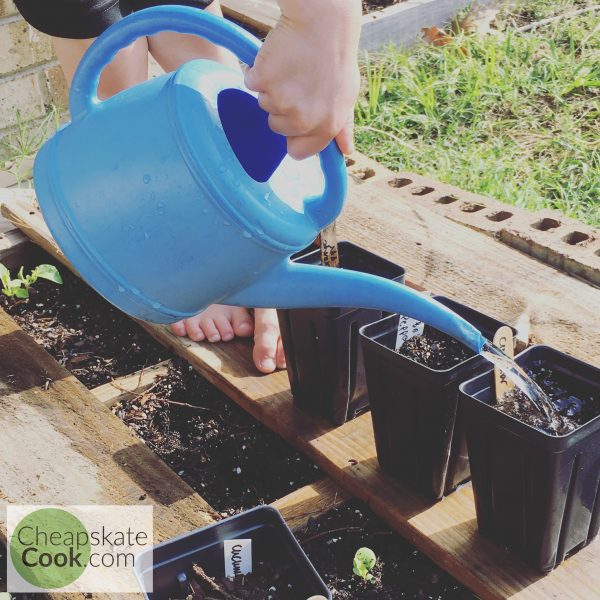
Make Your Pallet Garden:
Maybe you’re like me, and you can’t help but try to turn every patch of grass into something edible.
Or maybe you’ve never tried gardening, and you don’t want to break the bank then discover you have a black thumb. Here’s how we turned free pallets and some garden dirt into our family’s summertime dinners.
1. Location
Find a spot in your yard that gets at least 6 hours of direct sunlight per day. It’s best if the spot gets at least some shade during the day.
2. Find Old Pallets
Local businesses are the best places to find these for free. Anyone that works with shipping or fulfillment has pallets coming out of their ears. Craigslist is a fantastic source!
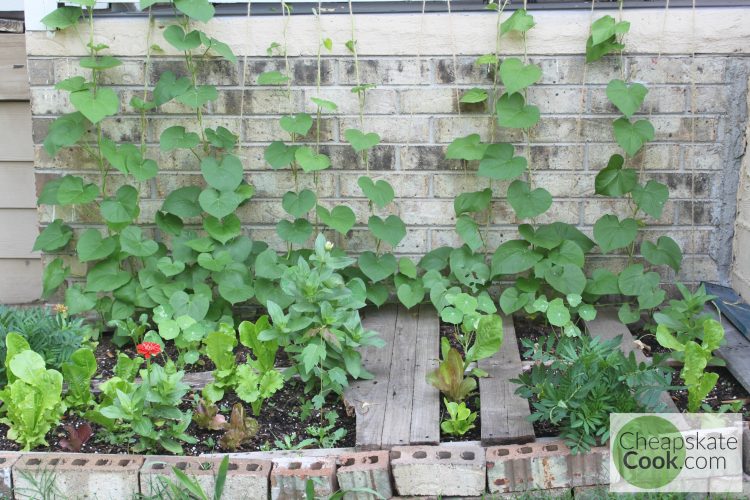
3. Make Sure it’s Heat-treated
Pallets are made from all kinds of wood in all kind of sizes. Some are treated with chemicals. Since you want the eat the plant growing out of this pallet, go with HT. It should have “HT” stamped somewhere on the outside of the pallet.
4. Weed Barrier
Lay cardboard down on the ground where your garden will be. It’s free and works great! Weed cloth also works, but cardboard boxes work just as well.
5. Fill it with Garden Soil
I’ve grown my pallet garden in shifts over the years, so I’ve tried a variety of soil. I’ve used potting soil, raised garden bed soil, and a DIY mixture recommended in the All-New Square Foot Gardening book (that’s an affiliate link, which means I receive a small compensation if you make a purchase using the links. You can view my full disclosure policy here). All worked great. I choose to go with the cheapest option, of course, with an emphasis on finding organic soil if possible.
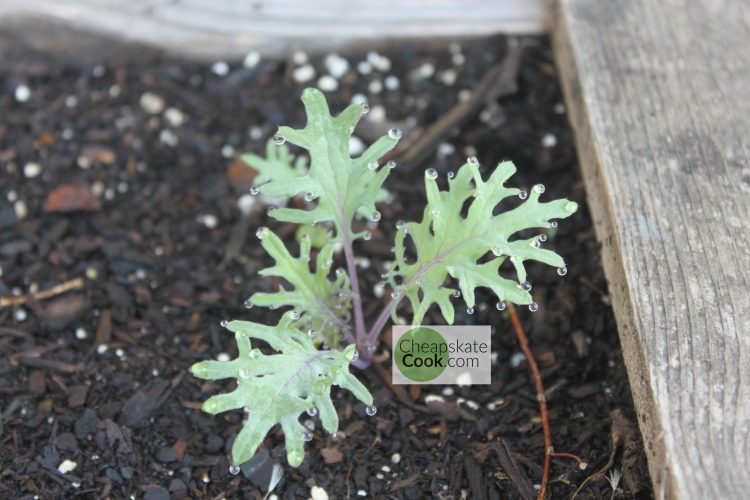
6. Plant Your Stuff
Start some things from seed and grow others from nursery plants. Seeds are obviously cheaper! I recommend reading up on each plant before you purchase it. Start with a few and add more variety each year.
7. Grow Vertically if You Can
I purposefully positioned our gardens up against the house, underneath the porch so I could work string from the pallets to the porch railings and create a sturdy, frugal (only cost was the nylon string and staples for the staple gun) trellis. I let anything tall and vine-y grow up this side – melons, tomatoes, peas, sunflowers, cucumbers, morning glories, beans, etc. If you can’t set it close to the house, there are about 58,632 trellis ideas on Pinterest.
8. Maintenance
Water, weed, and feed. Because it’s a raised bed and you used fresh dirt, you won’t get too many weeds. This is great news come mid-summer when the last thing you want to do it sweat in the dirt all day.
9. Eat All the Veggies! The Best Part!
10. No Root Vegetables
I should note, this pallet garden doesn’t work with root vegetables. It’s too shallow. And large vegetables like tomatoes and sunflowers absolutely need to be trellised so they have the support that they aren’t getting from deep root systems. They’ll be able to spread out and have room, but they obviously won’t grow deep. I plant some root vegetables in pots.
Before you try anything, I HIGHLY recommend reading All-New Square Foot Gardening (affiliate link). It’s the simplest and most entertaining garden book I’ve ever read, and it will give you all the tools you need.
I didn’t read any good garden books my first couple years trying to grow things. It was incredibly discouraging. Set yourself up for success by arming yourself with knowledge!
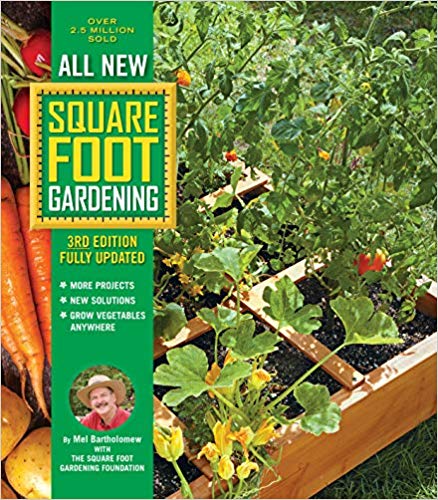
What You Can Do Now:
- Find a location for your garden – check mid-morning and mid-afternoon to see if your spot gets enough sunshine, and consider setting it up someplace where it will be easy to grow vertically.
- Check out the All-New Square Foot Gardening book from your local library!
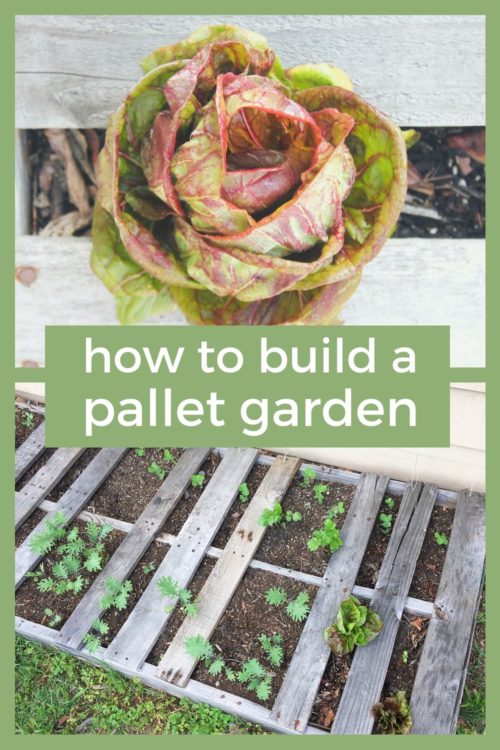


What things did you grow in your pallet garden?
Hi Carley! I grew anything that wasn’t a root vegetable because they need a few more inches of dirt than the pallets could give them. Even sunflowers with their thick roots did great in the pallet garden!